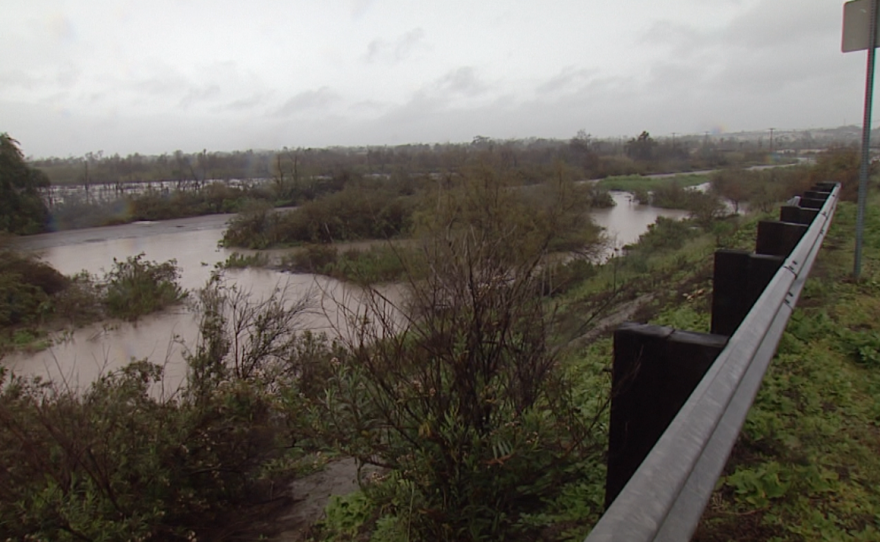A series of breakdowns that began on New Year's Day in Tijuana were responsible for the massive sewage spill that fouled the Tijuana River Valley north of the U.S.-Mexico border in February.
Monday's report was based on an investigation by the International Boundary and Water Commission. It found that at least 28 million gallons of sewage were released over a four-day period.
Much of the investigation confirmed earlier reports of the spill. But it also found the total could have been far worse — 256 million gallons of sewage didn't reach a water treatment plant during January and February. Initial estimates were that 143 million gallons of sewage spilled.
RELATED: Federal US And Mexico Officials Agree To Investigate Massive Cross-Border Sewage Spill
The group noted the difficulty in determining the exact scope of the spill, since it was not directly measured.
The mess caused a strong, foul odor throughout San Diego's South Bay neighborhoods, resulting in a flood of complaints to the commission. Elevated levels of E. coli bacteria were noted in the Tijuana River Valley.
According to the report, strong storms and a heavy flow caused the collapse of a wastewater collector on Jan. 1 in Tijuana, resulting in a sinkhole that damaged a roadway and bus shelter. Uncontrolled flows ended up in the Tijuana River, which runs north into the U.S., where it spills out into the Pacific Ocean.
RELATED: Imperial Beach Mayor Blasts Reaction To Major Sewage Spill
The 28 million gallons of spilled sewage came during repair work in early February, which diverted the flow into the Tijuana and Alamar rivers, the report said.
"This report provides concrete recommendations to help us properly respond to and prevent transboundary spills," said U.S. Commissioner Edward Drusina.
"It also has some reasonable and effective ideas as to how to speed up notifications," Drusina said. "The commission is committed to partnering with other agencies to use the report's findings to make improvements."
Rep. Scott Peters, D–San Diego, released the following statement in response to the IDWC report:
“Local and state Mexican authorities acknowledged that by keeping their American colleagues in the dark for too long they prevented assistance that could have accelerated repairs, and have committed to make changes so they don’t repeat the error."
Mexican Commissioner Roberto Salmon indicated that officials south of the border are making efforts to prevent such spills from happening, and improving notifications when they do.
The report noted that strong rains began overwhelming Tijuana's aging water collection infrastructure as early as December.






